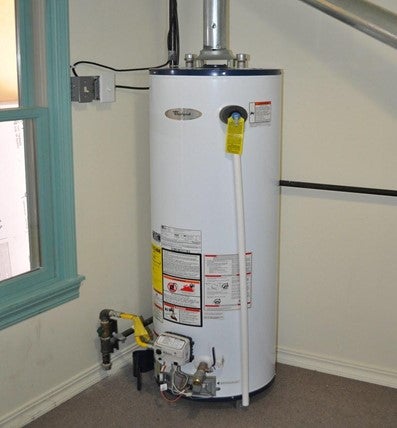Outdoor Plumbing Maintenance Tips

It’s easy to get overwhelmed by the many maintenance tasks that go into maintaining your home. It can be hard to know what needs to be done and when, and even harder to know how much it’s going to cost.
But if you’ve got an outdoor plumbing system that needs a tune-up, there are some things you can do with some help from professional plumbers so that you stay on top of things and avoid paying for major repairs down the road.
In this article, we take a look at outdoor plumbing maintenance tips you shouldn’t avoid. Your outdoor plumbing fixtures are just as important as indoor fixtures and shouldn’t be compromised.
Clean Gutters Annually
Clean out your gutters yearly. Remove leaves and debris that have collected in the gutters, as this can cause blockages that may lead to leaks or damage. Make sure the downspouts are not blocked, as well. Check for leaks at joints where pipes meet other fixtures like faucets or toilets–and repair them if necessary!
Clean Aerator on Sprinklers
The aerator is a small screen that sits on top of your sprinkler heads. It’s there to control water pressure and prevent clogs, but if it becomes clogged with sediment or debris, it can cause big problems for your system.
To clean the aerator:
Remove the head from its stem by turning it counterclockwise (you may need pliers for this). Then use a toothbrush or cleaning brush to scrub away any dirt or debris buildup inside the opening where you see the water coming out when you turn on your faucet full blast. You’ll also want to make sure there aren’t any sharp objects stuck in there–if so, remove them before putting everything back together again!
Once everything looks clean and clear again, reattach each head using its original screwdriver size so that all four screws line up evenly with one another again. Otherwise, they won’t stay tight during use, which could lead to leaks later down the road when temperatures rise.
Make Sure All Downspouts Are Working
Downspouts should be directed away from your home and not towards it. If they are directing water toward your home, they need to be adjusted by a professional plumber. They should also be directed toward the ground and not into the street, where they could cause damage to someone else’s property when it freezes in winter or melts during summer months.
Change Faucet Aerators Annually
Aerators are a simple, inexpensive way to reduce your water bill. They do this by limiting the amount of water that flows through the faucet at any given time. You can find new aerators at any home improvement store and install them yourself in just minutes–it’s as easy as screwing on an adapter that fits over your existing showerhead or faucet spout (you might need some plumber’s tape).
Examine the Supply Line for Leaks
Examine your supply lines for leaks and replace them as needed.
Check the joints where pipes connect to fixtures or faucets. Look for water stains, rust or other signs of deterioration that would indicate a leak in the line.
Replace any damaged pipes with new PVC pipes (if you have copper or galvanized steel pipes, call a professional plumber). If you’re unsure of what material you need, ask an expert at your local hardware store before making a purchase.
Keep Your Drains Clear
As you’re cleaning your sinks and tubs, it’s important to make sure that they are properly draining. The best way to do this is by using a drain snake or plunger if there’s an issue with clogs.
If you have a sink drain that has been backed up for some time now, then use the snake first before resorting to using the plunger. This will ensure that any debris stuck inside will get dislodged before you start plunging away at it with the plunger.
Regularly Check Water Pressure
Regularly check your water pressure. The ideal range is 20 to 40 PSI (pounds per square inch), but if it’s too low, you may need to install a booster pump or replace your current one with a more powerful model. If the pressure is too high, consider installing an expansion tank on your outdoor faucet(s). An expansion tank will help regulate the amount of air in the line and prevent damage caused by excess pressure from bursting pipes or causing leaks in nearby joints.
If you’re upgrading from an older system that has been running for years without any problems, don’t be afraid to ask questions about what kind of equipment would be best for your home! Most plumbers have experience working with different types of materials and know what will work best for each situation–they’ll even be able to tell whether there are any issues with certain products before installing them so they don’t cause any problems later down the road.”
Regular Maintenance is Necessary
Regular maintenance is one of the best ways to avoid costly repairs down the road. Check for leaks, especially in the winter when pipes are more likely to freeze and crack.
Keep your gutters clean so rainwater can flow freely away from your home and avoid pooling around it. Examine your supply lines for leaks and replace them as needed. Change faucet aerators yearly or as needed (they get clogged with mineral deposits).
Make sure all drains are clear at least once per year–this is especially important during winter months when pipes may freeze due to extreme cold temperatures outside!
Conclusion
With a little bit of effort, you can prevent major plumbing problems from happening in your home. By keeping on top of your outdoor plumbing and checking for leaks and damage regularly, you’ll be able to save money on expensive repairs down the road.
Call a reliable plumber to manage your outdoor plumbing maintenance regularly. If you’re looking for a trusted plumber in New Jersey, call Bob Hoegler Plumbing at 732-595-2078.
RECENT POSTS
categories
Archives
2024
2023
2022
2021
2020
2019
- December (2)
- November (2)
- October (2)
- September (2)
- August (2)
- July (2)
- June (2)
- May (2)
- April (2)
- March (2)
- February (2)
- January (2)

